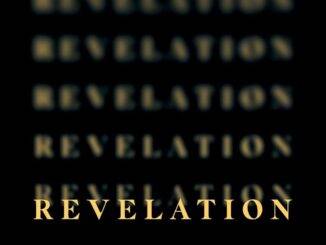Scripture References
Exodus 1:15-22
Name Meaning
Shiphrah – prolific or to procreate
Puah – child bearing or joy of parents
Family
Nothing is known about the families of these two brave midwives
Introduction
Years after Joseph saved his family and brought them to Egypt, the Pharaoh he had found favor with was no more, as were many generations. The Hebrews had grown significantly in number and the Egyptians feared they would overtake them and gain control. That is where we pick up our short snapshot of Shiphrah and Puah.
Lesson
Out of fear of the Hebrews rising up, the Pharaoh issued an edict to have the midwives destroy all male babies delivered. We are told that this command was given to two midwives, Shiphrah and Puah. We do not know if it went out to all midwives because there is no way two women could deliver babies for the entire Hebrew nation. But only these two were named, perhaps because of their actions and their faith and devotion.
While we do not know the families of these two women, we do know by their names they were Egyptian by birth. But they had come to know the God of the Israelites (Exodus 1:21).
Why were they such a threat? You can do the math yourself and speculate. But we have a census that was taken after the Exodus that gives us 603,550 Israelite males over the age of twenty (Numbers 1:46-49). That’s a LOT of males over the marrying age, which means a vast majority had wives. And we know that most had multiple children. If that many people fled from Egypt, you can imagine there were at least that many living there when Pharaoh ordered the male babies be killed.
An Ancient Jewish historian by the name Abraham Ibn Ezra (Langermann, T., 2021) said these two midwives were in charge of more than 500 midwives, which makes much more sense. If that was their role, they would have been expected to supervise and pass on orders to their workers.
Regardless, the Hebrew midwives were not killing the male babies to the level of satisfaction of Pharaoh. They were more afraid of God than of Pharaoh, and they saved the baby boys. He called them to come before him and give answer as to why his orders were not being fulfilled. They informed him that the Hebrew women were strong and hardy and delivered before they arrived, unlike Egyptian women who needed the aide of midwives.
Their actions were defiance. They chose to ignore the command to murder innocent children and then lied about why. They might have been disciplined had it only been one of these actions, but to do both risked not only their livelihood but also their lives! But these women had more faith in the God of the Israelites than fear of their Pharaoh.
And God looked favorably on them for their service. He was kind to them and they went on to have families of their own (Exodus 1:21-22).
We have no further mention of these women after this.
Conclusion
Following Jesus is challenging sometimes, but it is hard for us to imagine a scenario like that in which Shiphrah and Puah experienced. Today we look at stories like this and have difficulty seeing how it applies in our lives. But remember, we live in times where women kill babies daily through abortions.
Would you have the courage to stand up to government officials or rulers who told you to murder babies? Sadly, we have many doctors willing to do just that, while others refuse. At least we have the freedom to decide.
Source
(Langermann, Tzvi, “Abraham Ibn Ezra”, The Stanford Encyclopedia of Philosophy (Fall 2021 Edition), Edward N. Zalta (ed.), https://plato.stanford.edu/archives/fall2021/entries/ibn-ezra/








Be the first to comment